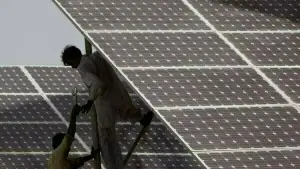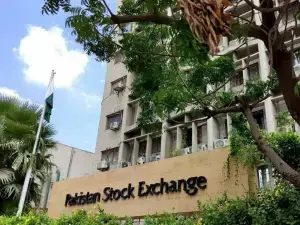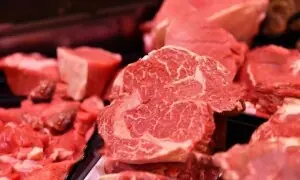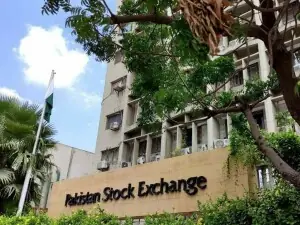At the entrance to a modest police post in the town of Grishk in southern Afghanistan, a bearded, uniformed police guard scrutinises the visitor with amazement. "Going to villages? You don't want to do that. You're going be killed and us as well," he says incredulously, under the watch of his colleagues.
This fear of the almost daily attacks in southern Helmand province is plain among the police of Grishk. The police are among the last remaining representatives of the state in this largely lawless, remote area and a favourite target of ever-present rebels led by the Taleban.
Four years after the ouster of the extremist Taleban government, Helmand -- a hotbed of rebel attacks, a buffer zone with Pakistan and the country's largest producer of illegal opium -- symbolises the erosion of security in Afghanistan's south over the past years.
"We only go to the villages in case of attacks and then with at least 20 soldiers and two trucks," says one of the policemen.
A while later in a bazaar in Grishk, a street of dusty, bustling shops that give the town an Eastern feel, the same policeman says with concern to the stranger: "If you want to sleep here tonight, you should stay with us and nowhere else."
All around merchants carry on their business and shoppers make little purchases of items from Pakistan or Iran.
Some wear a black turban and a white tunic, traditionally the dress of the Taleban who were forced out of government in a US-led invasion in late 2001 and are now leading a deadly insurgency against the government.
Violence, most of it blamed on Taleban rebels and their al Qaeda allies, claimed about 1,600 lives last year -- many of them militants killed by Afghan soldiers and the thousands of foreign troops trying to stem the insurgency.
Located in the middle of the desert on a key highway between Kandahar city in the south and Herat in the west, Grishk has the reputation of being one of the most dangerous areas in Helmand.
"Around Grishk, everybody is Taleban," says Qandigul, the head of a girls' school next to a police station. "We're still open only because we have the police next door," says the principal, who like many Afghans uses only one name.
"The situation was a lot better before. Today Taleban are everywhere, they threaten and attack villages and kill people." Even she has been threatened, says Qandigul, who is not always paid her monthly salary of 3,000 afghanis (60 dollars).
Of the 24 schools in the district, 14 have closed after being threatened by the Taleban. Several families in the surrounding villages have decided to move into Grishk to escape the rebels and find schools for their children, residents say.
About 30 kilometres (19 miles) away in the provincial capital Lashkar Gah, Helmand governor Mohammed Daoud works in his heavily secured headquarters watched round-the-clock by about 30 armed guards.
"The security situation in Helmand is not so good, but not so bad," he says.
But "hopefully, it will change" with the arrival in the coming weeks of 3,500 British soldiers and 3,500 Afghan troops in the province, which does not yet have a permanent military base and where the police are badly organised, he says.
But a few kilometres away, in a mudbrick fort surrounded by fields of opium poppies, Nad Ali district head Hadji Mohammed Qasem is less complacent.
"I have to have guns in my office and sleep in a different place every night. At night, I'm not sleeping," he says.
"The security situation is getting worse and worse. People are angry because the government doesn't do anything for them while Taleban tell the farmers that they will defend them against (opium poppy) eradication. "We have no help from the government.... We can only defend ourselves, not the people."
Just a few days later Qasem's colleague in charge of intelligence, Mohammed Ali Barak, was killed with three bodyguards when a bomb hit their vehicle. The attack was claimed by the Taleban.
POPPY ERADICATION DRIVE: Taliban rebels determined to keep southern Afghanistan in chaos have teamed up with drug barons against the government and its opDaily attacks by Taleban rebels in southern Afghanistan
Emmanuel Duparcqium eradication campaign launched last week, officials say.
The campaign to destroy opium poppy fields was kicked off on Wednesday (March 8) in southern Helmand, the producer of most of Afghanistan's opium crop -- which makes up nearly 90 percent of the world total -- and also one of the provinces worst-hit by a Taleban-led insurgency.
"Terrorists and narcotics are very close, they're supporting each other," says Helmand province governor Mohammed Daoud. "When narcotics production is up, terrorism automatically goes up."
Lieutenant Colonel Henry Worsley from the some 3,500 British forces that are deploying into the province bit by bit agrees. "Taleban and drugs feed each other. You cannot separate them here," he says.
In their last year in power, before they were toppled in a US-led invasion in late 2001, the internationally reviled Taleban banned opium and succeeded in drastically slashing its production to 185 tonnes from 3,300 the year before.
Some observers say their motivation was to win international favour; others say they wanted to push up the price of the raw ingredient of heroin.
Four years later the Taleban, now anti-government rebels, are willing to protect opium and opium farmers against the new administration, being pushed to eradicate the crop by the international community which sees it as a source terror funding.
"Taleban and smugglers work together because they have a common interest to destabilise the government -- Taleban to feed the people's anger against authorities, smugglers to carry on their business," says Haji Mohammed Qasem, head of Helmand's Nad Ali district.
"In both cases, drugs money feeds the struggle," he says. Several anonymous letters attributed to the Taleban have been distributed in the past months in unstable provinces, like Helmand, that threaten farmers with reprisals if they do not sow opium, residents say. Some letters also offer protection against government eradication attempts.
Despite these threats, the government has gone ahead with its eradication campaign. It was launched in Helmand's volatile district of Dishu, believed to be home to several big drug traffickers and markets on the border with Pakistan.
Officials expect there to be some resistance as security forces arrive with their tractors to plough up the opium fields in Helmand, which covered 26,500 hectares (65,450 acres) in the province in 2005 with more expected to have been planted in 2006.
"Taleban will try to disrupt the eradication campaign," predicts the Helmand governor who this month vowed to remove all the opium from his province in two months.
The about 1,500 policemen who will carry out the eradication in this largely lawless province will be in hostile terrain, confronted by farmers who will not allow the crop on which they survive to be destroyed just weeks before the harvest, and rebels ready to defend them.
"Eradication will cause fighting," says Mohammed Sardar, an official from the non-governmental group Mercy Corps that is trying to persuade opium farmers to switch to other crops. "Poor farmers won't fight, but Taleban and smugglers will," he says in Helmand's provincial capital of Lashkar Gah.
A Western security source in Kabul adds, "We have lots of indications that on many secondary roads rebels are planting mines to target the eradication force."
Said Worsely, "After the Taleban pressured farmers to grow poppy, it is very likely that they are protecting them. They could be involved by giving farmers rifles."
Despite the potential conflict, the Afghan government says it is determined to cut back the country's embarrassingly high opium output including through eradication.
However it does not seem to have found a way to deal with another problem with the drugs trade -- the implication of some of its most senior members in the black market business which was worth 2.8 billion dollars in exports in 2005 and gives its bosses enormous potentially corruptive power in this destitute country.
BR100
16,307
Increased By
236.2 (1.47%)
BR30
51,537
Increased By
1163.4 (2.31%)
KSE100
157,953
Increased By
1775.7 (1.14%)
KSE30
48,199
Increased By
520.5 (1.09%)






















Comments
Comments are closed.